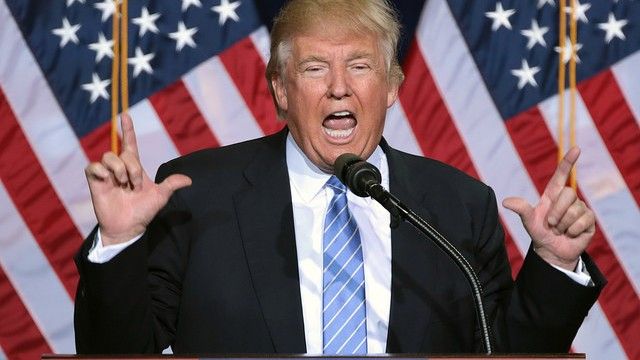To conduct a solid analysis on energy aspects of the summit, we need to remind and systematise the most important statements made at the summit or in relation to it.
‘I think it’s very sad when Germany makes a massive oil and gas deal with Russia, where you’re supposed to be guarding against Russia and Germany goes out and pays billions and billions of dollars a year to Russia. We are protecting Germany, we are protecting France, we are protecting all of these countries and then numerous of the countries go out and make a pipeline deal with Russia where they are paying billions of dollars into the coffers of Russia’, Trump said in Brussels. ‘Germany as far as I'm concerned is captive to Russia because it's getting so much of its energy from Russia. I think that is very inappropriate’ – he continued. At the opposite point of this the American president placed Poland which does not want to be a captive and, for this reason, has negative attitude towards Russian gas. Such language was being used by Trump during the whole summit. He has referred to Nord Stream 2 as a ‘bad deal’.
During a press briefing Jens Stoltenberg, NATO Secretary-General, addressed Trump’s comments. He stressed that there are different views for Nord Stream 2 and it is not for NATO to solve that issue. Stoltenberg emphasized that even in Germany there are divergent opinions of the projects. He also omitted controversial geopolitical effects of the pipeline on NATO members from Central Europe.
Merkel’s reply for Trump’s statement was traditionally balanced. ‘I have experienced myself how a part of Germany was controlled by the Soviet Union. I am very happy that today we are united in freedom, the Federal Republic of Germany. Because of that we can say that we can make our independent policies and make independent decisions’, chancellor said. Apparently, her diplomatic response may be seen as taking a firmer stance on the project. This results from the inner situation in Germany (significant SPD politicians have repeatedly showed their support for Nord Stream 2) as well as logic ruling the public life. Giving in to American demands would be a political suicide. Paradoxically, it may appear that Angela Merkel with her not particularly favourable attitude towards NS2 would have to defence her position. This appears even more likely when considering recent German-American disagreements.
Trump was immediately backed by the American State Department. ‘We have been clear that firms working in the Russian energy export pipeline sector are engaging in a line of business that carries sanctions risk (…) We believe it would undermine Europe’s overall energy security and stability by providing Russia another tool for the political coercion of European countries, especially Ukraine. Russia understands that this project is dividing Europe, and is using that to its advantage’, the spokesman commented.
As it is easy to guess, Trump’s strong verbal attack on Nord Stream 2 and German-Russian alliance had to provoke Kremlin’s reaction. Yet, the Russian position was not surprising. The Press Secretary for the President of Russia referred to this as egregious example of unscrupulous competition motivated by forcing European buyers to purchase more expensive LNG. Dmitry Peskov did not agree with Trump’s comments on the political aspects of the pipeline. He stressed that Nord Stream 2 is purely commercial project that correspond to the interests of suppliers of natural gas and the buyers of natural gas in Western Europe. Since his arguments are well-known and were many time refuted, we shall not give attention to them.
Donald Trump accustomed us to his unconventional activities. He has repeatedly pushed over the bargaining table to set the new one. He does not hesitate to make ‘ultimate’ arguments, accuse of hypocrisy and drive a wedge between European countries, groping them into ‘good’ and ‘bad’ categories. This time it was almost the same.
Yet, the American president’s words have some significance due to his formal position as a head of the superpower. We should highlight the priority status of Nord Stream 2 that was again under discussion at a high level meeting, despite being cumbersome for part of the European elites. For Poland and other opposing countries this is a positive boost, strengthening their position in the struggle for European solidarity and laws. For still hesitant Denmark Trump’s statement also seems to be a stimulus which may result in veto of the Nord Stream 2 project. It would force investors to change the route of the pipeline which means higher costs and delay of the project. However, it would not bring it to an end.
Increase of political costs of the project is certainly a great benefit of the summit. Trump’s speech was full of arguments that capture imagination of Western Europeans who often perceive relations with Russia differently. A picture of Germany or France stuffing Putin’s pockets (or more directly, funding his repressive political regime) is more than powerful. This fact was raised many times by Polish politicians. ‘In case of NS2 operation, Russian dependence on Ukraine will be declining. We can imagine then various military and political scenarios and this is the thing I warn our allies against. This is the danger I talked to Mr Tillerson about in Warsaw a few weeks ago’, prime minister Morawiecki said in February, just before his trip to Berlin.
The place, date and context of Trump’s words are not coincidental. The American president neatly joint energy security issues with (more important from his point of view) increasing expenditure for defence in NATO. Threatening to pull US out of alliance may suggest that previous attempts of encouraging NATO members to raise the expenditure did not succeed. That is why Trump has been looking for more serious arguments.
The scenario of raising Nord Stream 2 issue in order to achieve a ‘greater goal’ should be deemed as the most probable. Although US has repeatedly pointed the finger at the insubordinate NATO members, American administration has taken no concrete steps (for instance, measures included in CAATSA) so far. Unfortunately, it would increasingly seem that this offensive rhetoric is no more than a negotiation strategy instead of real support for NS2 opponents. Communications from Trump-Putin meeting seem to confirm this observation. The subject of potential sanctions or Europe's dependence on Russian resources simply disappeared. What we could hear from the American president was a… willingness of competing with Russian gas. Referring to the Polish realities, we would say that Trump is ‘in favour or even against’ the pipeline. And this is certainly not good news.
Summing up, Trump’s charge was truly impressive and would even have an effect on the project. Undoubtedly, it was also a signal of problematic nature of Nord Stream 2 sent to the western companies involved in the undertaking. Yet, the real value of Trump’s statement at the summit depends on future decisions and actions the president would take. If not (what we sadly expect), his performance will remain a token gestures or even, in the worst case scenario, a true disservice.

